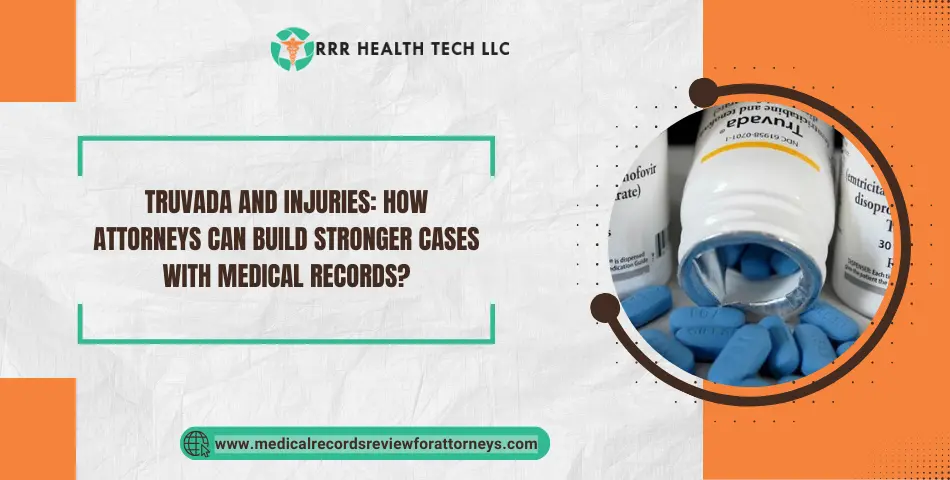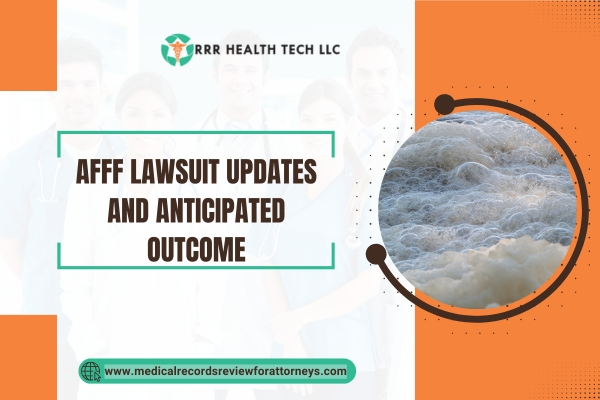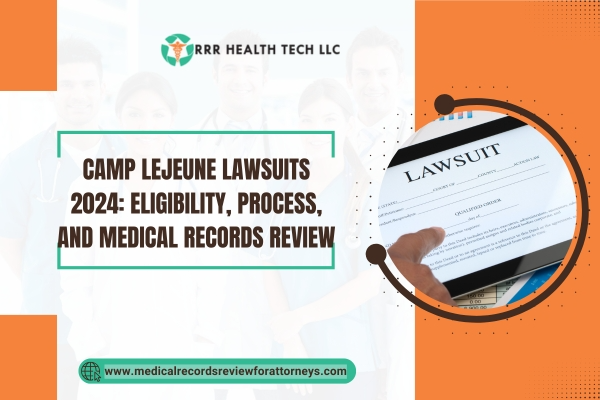
Truvada is an antiretroviral drug used in the prevention or management of HIV infections. It has been the center of many controversies lately. Even though it has benefitted so many in fighting HIV, its side effects have raised a lot of eyebrows.
For legal practitioners dealing with Truvada injury lawsuits, medical records are central to establishing strong cases. Knowing the counterevidence is important to better advocate for the individuals who were harmed.
Truvada Lawsuit Update 2025: Latest Developments in Litigation
As of 2025, the Truvada lawsuit landscape continues to evolve significantly. In a major development, Gilead Sciences has proposed a $40 million settlement in an attempt to resolve approximately 2,625 federal claims pending against the company. This proposed settlement would result in an average Truvada lawsuit payout of approximately $12,500 per claimant, though individual compensation would likely vary based on specific injury severity and circumstances.
Additionally, in January 2025, Gilead reached a separate settlement with the U.S. Department of Justice and Department of Health and Human Services regarding patent disputes over HIV prevention drugs. The government had previously claimed entitlement to up to $691 million in damages from Truvada and $311 million from other Gilead medications.
Despite these developments, thousands of Truvada lawsuits remain active nationwide, with new cases still being filed as more individuals discover connections between their health issues and Truvada use. Attorneys continue to accept new cases involving kidney damage and bone density loss in all 50 states.
Understanding Truvada and Its Linked Health Complications
Truvada has been reported to cause serious medical issues like irreversible kidney injury and loss of bone density. These are just some of the chronic side effects of the drug which can result in life altering disabilities. For this reason, a lot of plaintiffs have taken up litigation against the pharmaceutical company Gilead Sciences for not using adequate cautionary measures to warn users of the drug.
Attorneys taking up these litigating Gilead sites will need to familiarize themselves with the full range of Truvada’s health complications so that they can put together strong cases.
The Legal Landscape Surrounding Truvada Injuries
The injuries associated with Truvada result in multifaceted legal issues. Gilead is facing multiple injury claims alongside active class action suits. The lawsuits maintain that Gilead had knowledge of Truvada’s possible perilous effects but opted to withhold ( Descovy ) profit maximization. One of the most crucial aspects of building these cases is showing that Gilead did something that harmed the patients who used the drug.
It is paramount for attorneys to keep track of pharmaceutical litigation because it contains defective drug claims as well as class actions and mass torts. In addition, Gilead’s lawsuit settlements and lawsuits, including Gilead’s lawsuit update scheduled for 2025, are ever so important when building appropriate legal strategies.
Projected Truvada Lawsuit Settlement Amounts: What to Expect
While no Truvada lawsuit settlements have been finalized through completed trials, the proposed $40 million settlement offers some insight into potential compensation. However, legal experts suggest that individual Truvada lawsuit settlement amounts could potentially be much higher for cases involving severe injuries that proceed to trial rather than accepting the current settlement proposal.
For plaintiffs asking “how much can I win in Truvada lawsuit” claims, several factors determine potential compensation:
- Severity of injuries – Cases involving permanent kidney damage or significant bone fractures typically qualify for higher settlements
- Duration of Truvada use – Longer exposure often correlates with more severe injuries
- Medical expenses – Both past and projected future costs
- Lost income and earning capacity – Including long-term disability considerations
- Pain and suffering – Physical and emotional trauma caused by drug-related injuries
- Evidence quality – Particularly medical documentation linking Truvada to specific injuries
While the proposed $40 million settlement suggests more modest payouts, individual cases that proceed to trial could potentially result in significantly higher Truvada lawsuit payouts if juries find Gilead’s actions particularly negligent.
Building a Strong Case: The Role of Medical Records in Truvada Injury Lawsuits
Truvada lawsuits rely on the same fundamentals that make any injury case effective: strong medical evidence. To establish a causative connection with Truvada’s health issues, the lawyers will need to collate information that includes but is not limited to the following:
- Patient Medical History: Doctors can delve through Truvada’s patient history to find any relevant preexisting conditions or symptoms that were developed because of using the drug.
- Doctor’s Notes: Trained professionals who diagnosed and treated the patient can provide direct evidence that they observed the onset of kidney damage or reduced bone density alongside Truvada usage.
- Laboratory Results: Proving causation is straightforward, with lab results showcasing signs of kidney issues or bone deterioration.
- Treatment History: How much Truvada affected the patient’s health can be determined by any additional treatment given to counter the side effects of Truvada. This enhances the claim of injury severity.
Having a lucid timeline of all medical-related activities is needed to develop a strong foundation for the injury claim. The events in the timeline must be backed up with medical evidence through context.
Attorneys must engage with specialists in the medical field to portray these records in a manner that serves their clients best.
Additional Supporting Evidence for Cases Against Gilead Sciences
Other than the physician’s evidence, a Truvada injury case may benefit from other types of evidence. These may contain:
- Testimony from Expert Witnesses: Trained witnesses can speak about the effects of Truvada over time, including how Gilead did not properly warn their users.
- Internal Gilead Documents: Any internal documentation by the company that suggested that Gilead had knowledge of the risks but chose to do nothing about it is significant in proving the case.
- Pharmaceutical Marketing Materials: Some claims made in advertisements and promotional materials can be used as evidence of misrepresentation or false advertising.
- FDA Communications: Correspondence between Gilead and regulatory agencies regarding drug safety concerns or warning label requirements.
- Similar Case Precedents: Information from other TDF drug cases that establish patterns of corporate behavior.
With all evidence, attorneys can target every aspect of the case to better enhance their client’s stance.
Compensation Claims in Truvada Injury Cases: What Affected Individuals Should Know
People who have suffered from the adverse effects of Truvada can claim compensation for their injuries. Claims in these cases may include:
- Economic Damages: This refers to any monetary outlay incurred in medical treatment or expenses, loss of wages and income, or reduced earnings because of the injuries.
- Non-Economic Damages: These damages include the pain and suffering, distress and pain, and loss of life’s enjoyment brought about due to the side effects of Truvada.
- Punitive Damages: In some circumstances, where Gilead’s behavior was particularly outrageous, punitive damages can be awarded as well. Under certain state laws, punitive damages may be capped at three times the amount of economic damages or $500,000, whichever is greater.
For the individuals who have been affected, it is important to understand the totality of damage that Gilead owes, and attorneys need to ensure that medical records and evidence are drawn up to support these estimates of damages.
The question of “how much can I win in Truvada lawsuit” varies significantly depending on individual circumstances, but properly documented cases with clear causation evidence typically result in higher compensation.
Timeline for Filing Truvada Lawsuits and Expected Resolution
Understanding the timeline for Truvada lawsuit claims is critical for affected individuals. Most states impose a statute of limitations – typically 2-3 years from when the injury was discovered or should have been reasonably discovered. As the litigation progresses through 2025 and beyond, more Truvada lawsuit settlements are expected.
Attorneys should advise clients that mass tort litigation like the Truvada lawsuits often takes several years to resolve completely. While the proposed $40 million settlement may resolve some claims in the near term, many cases will likely continue through the litigation process, potentially resulting in different Gilead lawsuit settlement amounts depending on case specifics and jurisdiction.
Conclusion:
Truvada injury cases are multi-faceted, and the attorneys need to look at the medical records and various other evidence with a microscope. Certain details require clarification and further investigation and experts in the medical field should form the basis of a well-supported case for the client. So long as Gilead continues to be under the watchful eye of the law, the importance of medical evidence in these claims will never be questioned.
As the litigation continues into 2025, staying informed about the latest Truvada lawsuit update 2025 developments will be crucial for both attorneys and affected individuals seeking justice and fair compensation for injuries caused by this medication.
FAQs:
What happened with the Truvada lawsuit?
The Truvada trial pertains to people who suffered health complications like kidney issues along with bone density reduction due to alleged over-consumption of the medication. As of 2025, Gilead has proposed a $40 million settlement to resolve approximately 2,625 federal claims, though thousands of cases remain active.
What is the controversy with Truvada?
The debate focuses on the statement that Gilead Sciences as well as the marketers had potential health risks of Truvada such as kidney damage and bone deficiency but still opted to sell the medication without sufficient warning. Plaintiffs also allege Gilead delayed developing safer alternatives to maximize profits.
What is the Gilead Tenofovir lawsuit?
The Gilead tenofovir lawsuit has to do with legal complaints Gilead has had to answer regarding its medication that contains a serious ingredient in Truvada, tenofovir. Plaintiffs argue that Gilead did not market a safer formulation of the medication to make more money.
How long does Truvada stay in your body?
Truvada can stay in the body for some days after the medication is stopped, as the drug’s half-life is long. Once a person completes a dose, it takes, on average, 10 – 15 days for the medication to be completely washed away from the body.
What are the potential Truvada lawsuit settlement amounts?
While no final Truvada lawsuit settlements have been reached through completed trials, Gilead’s proposed $40 million settlement for 2,625 claims suggests an average potential payout of approximately $12,500 per case. However, individual Truvada lawsuit settlement amounts could vary significantly based on injury severity, with more serious cases potentially qualifying for substantially higher compensation if they proceed to trial.
How much can I win in Truvada lawsuit claims?
The amount you can potentially win in a Truvada lawsuit depends on several factors including injury severity, duration of drug use, medical expenses, lost income, pain and suffering, and quality of evidence. While the current settlement proposal suggests moderate compensation, individual cases with severe injuries and strong evidence could potentially result in significantly higher Truvada lawsuit payouts if they proceed to trial rather than accepting the proposed settlement.
For those affected by the adverse effects of Truvada as well as their friends and family, it is important to seek the guidance of an experienced attorney.
At RRR Health Tech our focus is on filing difficult cases related to injuries from pharmaceuticals more than others. Get in touch with us today so we can offer a consultation and get you started on the best and easiest ways to solve your Truvada injury case.


